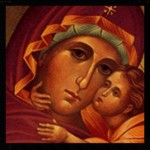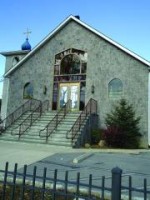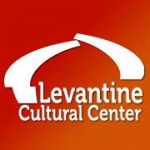Subscribe
to receive news by email
Subscribe
to receive news by email
Arabic 101
Arabic Word of the Day
Shami and Levantine Dialect
AraBIT
Arab Trivia
Coffee It is impossible to enter an Arabic home without being offered coffee, either American-style coffee or the strong, aromatic Arabic coffee flavored with cardamom, a...
Read More
Copyright © 2026 Arab America
Go topOrganizations
Welcome to the Antiochian Orthodox Christian Archdiocese of North America, an Archdiocese of the Orthodox Patriarchate of Antioch and All the East. We trace our roots to first century Antioch, the city in which the disciples of Jesus Christ were first called Christians. Sometimes called the Eastern Orthodox Church, the Orthodox Church is the first Christian Church, the Church founded by the Lord Jesus Christ and described in the pages of the New Testament. Her history can be traced in unbroken continuity all the way back to Christ and His Twelve Apostles. For twenty centuries, she has continued in her undiminished and unaltered faith and practice. Today her apostolic doctrine, worship and structure remain intact. The Orthodox Church maintains that the Church is the living Body of Jesus Christ. Read our Discover Orthodox Christianity section, and the Nicene Creed, to learn more about our faith.
The Antiochian Church in North America
The Church of Antioch was established by the Apostles Paul and Barnabas in 42 A.D., with St. Peter serving for the next eight years as its first prelate. The Church of Antioch is one of the five ancient Patriarchates of the Christian Church, along with Alexandria, Constantinople, Jerusalem, and Rome. We are in full communion with our brothers and sisters in various other Orthodox Christian jurisdictions, such as the Greek Orthodox Archdiocese of America and the Orthodox Church in America. Together we work to nurture the Orthodox Christians of this land—whether immigrants or native-born, cradle Orthodox, or converts—and to bring America to the ancient Orthodox Christian Faith.
A History of our Archdiocese
More on the Patriarchate of Antioch
St. Raphael, Bishop of Brooklyn
Constitution of the Archdiocese
List of the Officers of the Archdiocese
His Beatitude John X
Metropolitan Joseph
Hierarchs
Our Archdiocese currently includes nine dioceses spanning the continent, overseen by eight bishops in addition to Metropolitan Joseph. Each of our bishops works in concert with our Metropolitan to guide and grow our parishes.
The Antiochian Archdiocese was led for over forty years by His Eminence Metropolitan Philip Saliba, prior to his falling asleep in Christ on March 19, 2014. After his repose, His Beatitude John X appointed Metropolitan Silouan of Buenos Aires and all Argentina as the Patriarchal Vicar, and Archbishop Joseph of the Diocese of Los Angeles and the West as the Locum Tenens of the Archdiocese. The Holy Synod of Antioch, meeting in Balamand, Lebanon on Thursday, July 3, 2014, elected Archbishop Joseph to be Metropolitan of all North America.
Learn more about our bishops.
Departments and Organizations
Much work of our Archdiocese is accomplished by dedicated ministry staff and volunteers laboring in a wide range of departments and organizations seeing to the needs of our communities. From sacred music to Christian education, from care for aging priests to missionary work, and beyond, our Archdiocese benefits from the work of those who choose to serve.
See descriptions and links for all our departments and organizations.
Parishes
The Antiochian Orthodox Christian Archdiocese of North America includes over 275 cathedrals, churches, and missions throughout the United States and Canada.
Use our parish search engine to easily locate and contact any of our churches.
-
Mission Statement
Mission
Levantine Cultural Center champions a greater understanding of the Middle East and North Africa by presenting artistic and educational programs that bridge political and religious divides. In a search for common ground, the Center fosters discussions among artists and thinkers and offers classes and workshops that serve diverse ethnic communities.
Cultural Context
Levantine Cultural Center includes majority and minority cultures, stretching from the historical Al-Andalus of southern Spain and Morocco to the Balkans, Greece, Turkey and across North Africa and the Middle East as far as Afghanistan and Pakistan. It includes the creative work of Arabs, Jews and other ethnic/religious groups with Mideast origins who are living in the West.
Where We Stand on Middle East Peace
Many Israelis and Palestinians have come to the conclusion that there is simply no violent solution to the conflict, and that only a peaceful and just negotiated settlement will bring about change in the region. With them, Levantine Cultural Center supports only non-violent approaches to cross-cultural understanding. All of our programs emphasize the need for coexistence and taking shared responsibility.
Vision
Levantine Cultural Center produces or cosponsors artistic programs that encourage cross-cultural and multidisciplinary collaborations, and that give voice to issues and experiences of underrepresented Middle Eastern communities in order to bring informative and alternative information on these communities to the American public and media.
We partner with community groups and artists that engage in cross-cultural initiatives or the education of a broader public with cultural/social relevance. We strive to work collaboratively with multigenerational, multiethnic, multidisciplinary and/or broad geographic communities in response to cultural/social issues articulated by those communities.
Levantine Cultural Center seeks to support the publication and dissemination of research that substantiates the importance of the arts in influencing social change; and the dissemination of information about collaborative projects that leads to effective public education about Mideast cultures and issues.
Levantine Cultural Center is strongly non-partisan and non-sectarian. We do not espouse any political or religious doctrine, and we are committed to the principles of cross-cultural cooperation.
Mid-term Goal
Raise $2,000,000 in FY 2013, allowing for the addition of professional staff members (development director, publicity manager etc.) and expansion of our facility so that we can meet the current demand for both programs and classes. We seek to expand our performance space from a capacity that serves approximately 100 people to a space that can accommodate 250 people; we also require additional office space and classrooms (for language, music and dance classes), along with a conference room.
Long-term Goal
Launch a capital campaign in 2014 with the objective to raise $20-$100 million for the creation of a landmark arts complex that will be a mecca for Middle Eastern/North African cultures in Southern California.
LOS ANGELES OFFICES
Levantine Cultural Center & Inside/Outside Gallery
5998 W Pico Blvd
Los Angeles, CA 90035-2657
Event Reservations 323.413.2001
Tel: 310.657.5511
Fax: 310.657.5522
Media Inquiries only: 310.402.8866





